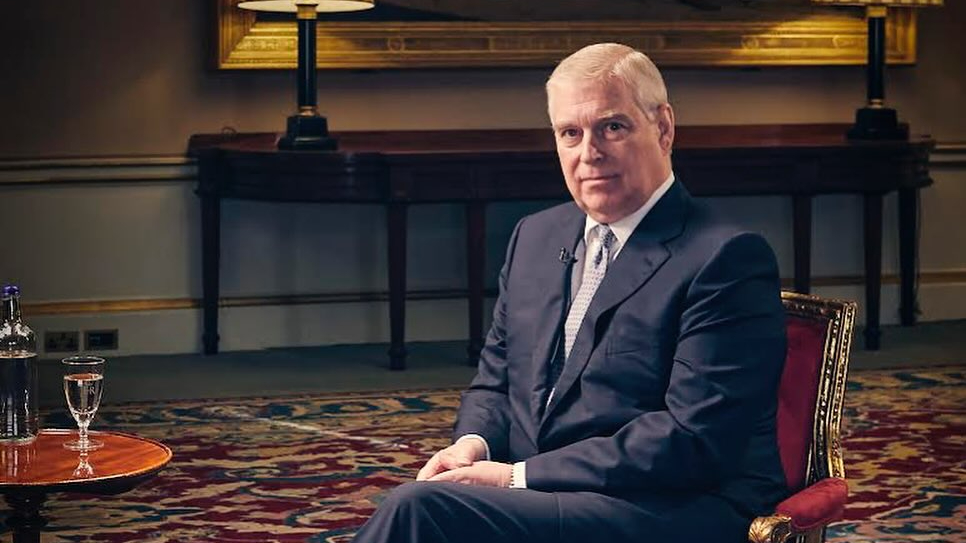From York to Windsor: How Yang Tengbo Became Prince Andrew’s Trusted Confidant Amid Espionage Allegations
Yang Tengbo, a Chinese businessman who moved to the UK in the early 2000s, has emerged as a central figure in a web of intrigue involving Prince Andrew, espionage allegations, and covert dealings between the British royal family and China. Known in the business world as Christopher Yang, the 50-year-old's rise from a junior Chinese civil servant to a close confidant of the Duke of York has raised eyebrows. His connections and the subsequent revelations about his relationship with Prince Andrew have spurred national security concerns, making his story one of the most captivating – and controversial – in recent British history.
A Chinese Entrepreneur with Unlikely Ties to Royalty
Yang's journey to becoming one of the most influential figures in the UK’s Chinese investment circle began modestly. After completing his education in China, he relocated to the UK in 2002 to pursue a master's degree in public administration and public policy at the University of York. Little did anyone know that this seemingly routine academic pursuit would lay the foundation for his intricate ties to the British royal family.
In 2005, Yang founded the Hampton Group, a strategic advisory firm based in Mayfair, London, that specialized in facilitating connections between Chinese investors and British businesses. The firm quickly became a key player in UK-China business relations. It was here that Yang began cultivating a network of influential contacts, leading him into the upper echelons of British society.
But it wasn’t just business opportunities that Yang was securing. He made his way into the royal circle, an ascent that culminated in an invitation to Prince Andrew’s 60th birthday party at Royal Lodge in Windsor. He attended prestigious events at St James’s Palace and Windsor Castle, regularly rubbing shoulders with former Prime Ministers David Cameron and Theresa May. Yang’s close ties with the Royal Family were not just limited to social gatherings. He was even photographed in formal attire alongside Theresa May and her husband, Philip, at Downing Street.
From Trusted Business Associate to Alleged Spy
As Yang's influence grew, so did his connection to Prince Andrew. He served as the chair of the Hampton Group and took a prominent position on the committee of Pitch@Palace in China – an initiative established by the Duke to connect entrepreneurs with investors. Yang’s status within the royal ecosystem seemed to reach its peak when he was referred to as “the very top of the tree” by Dominic Hampshire, a senior adviser to Prince Andrew. This phrase signified Yang's access to the most trusted circles of the royal family.
In March 2020, Hampshire wrote to Yang, acknowledging his deep trust and positioning him as an integral player in Prince Andrew’s business ventures, including dealings related to the Eurasia Fund – an international financial initiative targeting Chinese investors. Hampshire's letters implied that Yang was more than just a business partner; he had the authority to represent Prince Andrew in high-stakes negotiations with China.
But what appeared to be a mutually beneficial professional relationship would soon become embroiled in national security concerns. UK security services began investigating Yang's ties to the United Front Work Department (UFWD), a covert Chinese Communist Party division designed to influence foreign elites and align them with China’s interests. Investigators raised alarms over Yang's frequent contacts with Chinese officials and his apparent ability to operate under the radar, fostering relationships with individuals who held sway in both the UK and Chinese political spheres.
A Clandestine Relationship?
The investigation into Yang took a dramatic turn in November 2021 when he was intercepted at an airport by UK authorities. During the search, officials confiscated his electronic devices, including his mobile phone, and found a treasure trove of correspondence that deepened suspicions of espionage.
One particularly alarming letter, dated March 2020, revealed the high level of trust Yang had secured from Prince Andrew and his inner circle. The letter expressed a clear sense of privilege, noting that Yang occupied a "prominent position" within the royal family, one that many others aspired to. The letter also mentioned that Yang had been given special access to Windsor residences and was trusted to engage in business ventures on the Duke's behalf.
Further examination of the documents discovered in Yang’s devices suggested a more clandestine side to his operations. A document, allegedly involving the Chinese embassy, detailed a conversation between Yang and Prince Andrew, with instructions on how to manage expectations in their dealings. The document even suggested that Yang "steer clear of mentioning any 'big numbers'" to avoid raising unnecessary pressure on the prince.
Exclusion from the UK and Espionage Allegations
In February 2023, after months of scrutiny, Yang was removed from a flight traveling from Beijing to London and informed that the British Home Secretary was considering excluding him from the UK due to concerns over national security. His ban was officially confirmed the following month, as authorities cited evidence from his devices, including letters and documents that suggested Yang’s deep involvement in sensitive business negotiations tied to the royal family and Chinese interests.
The Home Office’s actions were a direct result of fears that Yang had exploited his proximity to Prince Andrew for espionage purposes, using his position to act as a liaison between Chinese officials and the royal family. The investigation also raised questions about whether the Duke of York, under significant personal and public pressure due to his association with convicted sex offender Jeffrey Epstein, had been vulnerable to such influence.
Yang, for his part, has strongly denied any involvement in espionage. He claimed that he "steers clear of political involvement" and has no connections to Chinese political figures. However, officials remained unconvinced, noting that his devices revealed frequent communication with Chinese state officials – a detail that further fueled suspicions about his true role.
The Duke’s Vulnerability
The investigation into Yang Tengbo’s activities has also shed light on the vulnerability of Prince Andrew, who, during this period, was navigating the aftermath of the Epstein scandal. The pressure on the Duke made him susceptible to outside influence, something that the UK authorities acknowledged in their findings. The ruling that led to Yang’s exclusion from the UK noted that the trust Yang had gained from Prince Andrew was not just extraordinary but could have been exploited by foreign powers for their own agendas.
The Duke’s office has consistently stated that any connection to Yang was purely professional, with no sensitive or confidential matters discussed. Nevertheless, the proximity between Yang and the Duke, coupled with the nature of their business dealings, has left questions lingering about the depth of their relationship and the motivations behind their interactions.
Related: Yang Tengbo: Alleged Chinese Spy and His Controversial Ties to Prince Andrew
The Complex Landscape of UK-China Relations
Yang’s story highlights the increasingly complex landscape of UK-China relations, where business ties, diplomacy, and security intersect in ways that raise significant concerns. While trade relations between the two countries have historically been beneficial, the involvement of foreign nationals in UK political and royal circles complicates these ties. With the rise of China’s influence on the global stage, the UK’s approach to Chinese nationals with close ties to British elites has become a topic of scrutiny.
As a result, Yang Tengbo’s exclusion from the UK serves as a reminder of the challenges that come with navigating this landscape. His actions, while denied by him as politically motivated, underscore the potential risks posed by foreign influence on domestic affairs, especially when it involves the royal family. For Prince Andrew, the timing of his associations with Yang—amid public scandals and investigations into his own conduct—has raised difficult questions about vulnerability, influence, and the role of foreign agents in shaping the UK’s policies.
Yang Tengbo’s rise from a junior civil servant in China to a trusted confidant of Prince Andrew is a remarkable tale of ambition, networking, and potentially dangerous geopolitical maneuvering. As his story unfolds, it becomes clear that his involvement with the royal family was not merely a series of happenstance meetings but rather a carefully cultivated relationship that spanned both business and diplomatic lines.
With allegations of espionage and national security risks now at the forefront, Yang’s case highlights the increasingly complex intersections between politics, business, and security. While Yang continues to deny the charges, the revelations about his connections to the Duke of York raise critical questions about the role of foreign influence in shaping British diplomacy and business dealings. As the investigation progresses, the implications for Prince Andrew, his family, and the wider UK-China relationship remain to be seen.









